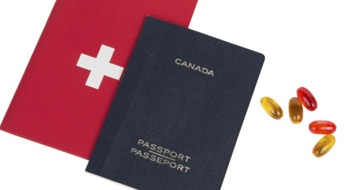
Stan* was a long-time employee at a major technical manufacturer in a safety-sensitive job. When a work injury required knee surgery, he was prescribed an opioid to deal with post-operative pain. He found that in addition to helping with the knee pain, his prescription also helped him cope with lingering post-traumatic stress disorder (PTSD) from his military reserve experience. When he needed the medications long after the pain in his knee had subsided, his doctor stopped prescribing. Although Stan found another doctor, this new doctor also eventually refused to prescribe. When he couldn’t find a third doctor to prescribe, he turned to buying street drugs.

One way employers can stay on top of their drug spending is to understand how Canada’s medication prices are formed and to educate their employees about the value of the drug plans they offer.

Industrial Alliance Insurance and Financial Services has introduced a drug cost management tool for its group insurance clients.

Canadian employers that use drug plan management strategies such as pay-direct cards, generic substitution or dispensing fee caps can realize significantly lower healthcare costs.

What could we do in an area like this if we had nearly $62 million every year to invest in plan members instead of lighting that money on fire?

When plan members don't take their medications for chronic conditions, it can also have a negative impact on employers' drug plans.

The number of high-cost prescription drug claims that Canada's private insurers covered for Canadians with fully-insured supplementary health insurance plans doubled in the Canadian Drug Insurance Pooling Corporation's first year of operation.

This spring, the Canada Health Accord, the 2003 agreement between the federal and provincial and territorial governments on healthcare delivery and funding, expired. Although the current federal government has set out a new funding formula for health transfer payments to provinces, funding will be tied to economic growth and population size without adjustments to account for healthcare inflation. And while there is a position on funding, there has been little apparent movement or discussion about the delivery of healthcare going forward, and that has many wondering what this means to Canadians.

The Empire Life Insurance Company has signed an agreement with Express Scripts Canada to provide pharmacy benefit management services to its group customers.

Manulife has entered into an exclusive partnership with healthcare provider Bayshore HealthCare to deliver a specialty drug care program, which features drug case management services and a preferred provider network.